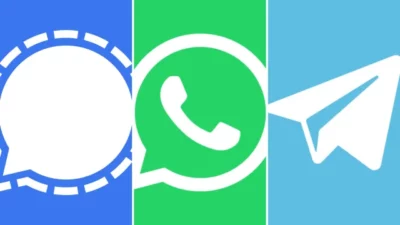WhatsApp will likely set the global standard for messaging interoperability: This is Why and possibly What

The world already has quite a few good open-source, E2EE and secure messaging protocols like XMPP, Signal, MTProto, Wickr, Wire, and more. But none have ended up dominating across messaging apps. Also, there is no defined W3C open standard for messaging, like there is ActivityPub for social networking interoperability.
We now have the situation (a good one actually) that the EU is forcing WhatsApp to interoperate with other messaging platforms. That means WhatsApp must offer interconnectivity using some protocol. But that protocol was not defined by the EU, and there is no open standard recommended by a standards body yet (seems W3C is still busy developing its recommendation for WebRTC as a messaging API [which Facebook Messenger and Google Hangouts use] but that was not really created for this type of purpose, as I gather it was more intended for web applications).
In summary on the ‘Why’, WhatsApp can’t be expected to create a separate protocol API for every messenger out there, so they must choose one that others can also adopt and use. In the absence of an international standard, WhatsApp must make a choice, and because WhatsApp is by far the biggest messaging platform on this planet, what they decide to use will be adopted by many other messaging platforms as either their primary or secondary protocol as well. That in turn (should) allows them to interoperate with each other too, thereby effectively creating a common messaging standard through popular usage.
So, ‘What’ could WhatsApp decide on? Well, I’m speculating that as they already built WhatsApp using the modified Signal protocol, that it would make the most sense for them to actually adopt that. The API they expose would just have to be a standard Signal protocol. The Signal protocol would likely mean the least effort for WhatsApp, and it is very well established as a secure E2EE messaging protocol already.
Of course, WhatsApp may also take the low road approach out of spite, and just for compliance purposes, adopt something that uses plain open text like SMS, and limit it to the EU region only.
Neither iMessage nor RCS really qualify for use as they are both limited to separate OS ecosystems. Although an approach taken like Beeper did, with transparently using Matrix rooms and bridges could work, I don’t think WhatsApp will follow that approach as it is more complex than just exposing a standard messaging API, for others to do the work on connecting to. There is nothing wrong with XMPP and the other protocols, but I’m still thinking WhatsApp will stick to what they are more familiar with, and has the least effort involved.
If Apple had adopted RCS, then it may have been a different story, as RCS may have then made sense as it is designed for secure E2EE instant messaging with presence indication, etc. Or if Apple had opened iMessage up to Android, but now I’m just dreaming…
I am eager to witness WhatsApp’s next move, as it will usher in a new age of cross-platform communication for everyone. Currently, most ‘open’ messaging platforms remain isolated, because they have not gained widespread adoption by other parties, despite being open. WhatsApp has an opportunity to change that, thanks to the European Union.
#Blog, #interoperability, #messaging, #technology, #whatsapp
There are no comments yet.